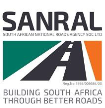PREFERRED BIDDER FOR N1-N2 WINELANDS TOLL HIGHWAY PROJECT ESTIMATES PROJECT COST AT R10 BILLION
The South African National Roads Agency SOC Limited (SANRAL) hereby announces the selection of Protea Parkways Consortium (PPC) as the Preferred Bidder for the N1-N2 Winelands Toll Highway Project planned for the Western Cape Province. The PPC Consortium comprises a variety of private investors and partners to the South African Government and includes a team of highly qualified contractors, Small Micro and Medium Enterprises (SMMEs), financial institutions, technical and legal experts, socio economic and development specialists and environmentalists.
The estimated project cost as proposed by the preferred bidder is in the order of R10 billion. The N1-N2 Winelands Toll Highway Project is a partnership between the public sector represented by SANRAL and the private sector, the PPC consortium under the concept of Private and Public Partnership (PPP) for a period of 30 years.
The Initial Construction Works (ICW) will take 3 years to complete. The envisaged commencement date is the second quarter of 2012 if the full funding for the Project is successfully raised. The operation and maintenance period is expected to start, in principle, from 2015 - 2042.
The Project is 175km in total andwill include the 105km of the N1 Section from the Old Oak Interchange (West of the R300) to Sandhills (De Doorns Intersection East of the Hekspoort), and the 70km of the N2 Section from a point West of the Swartklip (R300) Interchange to Botriver (East of the Hermanus road interchange). The detailed project scope is included in the fact sheet below.
The N1/N2 Winelands Toll Project will increase road capacity, improve safety and offer cost savings in terms of lower vehicle running costs and less time spent on the road. The route will feature Intelligent Transport Systems (ITS) and Travel Demand Measures (TDM) with Variable Message Signs (VMS), CCTV, electronic traffic detection services and street lighting for quick response times to accidents and to generate traffic data for informed travel decisions and safer journeys. The project also involves the construction of pedestrian bridges to prioritise the safety of all users of this route.
In addition to alleviating congestion and the resultant direct benefits to road users, the project has the potential to create approximately 5 000 jobs during the construction phase, of which at least 72% of the total direct jobs would go to workers from local communities. A further 1300 to 2100 indirect jobs will be created during the initial construction period. Approximately 600 more direct jobs will be generated on an annual basis through operation and maintenance.
Furthermore, specialised job opportunities for tunnel operations will create approximately 25 permanent posts for the 30 year Concession period. This will also generate training opportunities for construction related skills, basic life skills, entrepreneurial skills, safety, as well as 60 bursaries. Sub-contracts will be awarded to SMMEs that will hold 20% for D&C Works, and 80% towards maintenance and operation.
Similar to the implementation of other toll projects, there were concerns that the N1-N2 Winelands Toll Highway Project would lead to an increase in the cost of consumer goods. To this end SANRAL conducted a cost benefit analysis which showed that due to the savings that will be accrued by businesses from operating on the tolled roads, consumer goods prices should be less with the tolled roads than without it.Logistics companies will also be able to claim back from SARS the toll tariffs as well as the associated VAT, and therefore the cost should not add to freight company operations and consumer prices.
Economic Impact Studies from the Graduate School of Business of the University of Cape Town show that the cost of consumer goods being transported from the Cape farms and dry goods from Gauteng (such that these vehicles go through all the toll plazas on the N1) would increase by between 0.30% and 0.31% depending on the income category. This is the equivalent of 31 cents for each R100 that is spent. For fresh produce coming from Caledon and dry goods coming from Port Elizabeth destined for Stellenbosch via Cape Town International Airport Industria the cost increase is between 0.24% and 0.29%. For goods destined for the city centre and the southern suburbs the cost increase is between 0.19% and 0.23%.
Because of their strategic importance to the economy of the Western Cape Province as well as that of South Africa as a whole, the identified roads were declared toll roads by the Department of Transportto ensure revenue for their upkeep. As an agency of the Department of Transport, SANRAL was mandated to deliver on this policy decision through the implementation of the N1-N2 Winelands Toll Highway Project.
Most of the N1 and N2 road infrastructure was constructed 20-30 years ago. Investigations show that these roads are approaching the end of their design life and will deteriorate very rapidly once they reach this point. Already portions of the N1 and parts of the N2 in both directions are showing signs of deterioration with uneven surfaces and pavement failure.
Furthermore, traffic growth patterns of the past few years of between 3% and 5% per annum show that traffic on the existing roads would more than double over the next 20 years and more than triple in a 30 year period. As current traffic volumes are already causing congestion on certain sections of the roads, with the forecasted traffic growth figures, serious congestion would occur along most sections of the road in the future.
Statement issued by Priya Pillay, Corporate Communications Manager, The South African National Roads Agency Limited, October 11 2011
Click here to sign up to receive our free daily headline email newsletter

